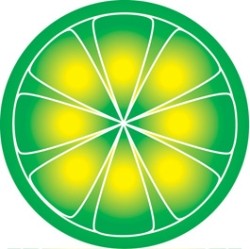With Limewire Down, Americans Don't Know How to Steal Music
 Record label executives are celebrating today. Sort of. When the Recording Industry Association of America (RIAA) successfully lobbied the New York District Court to shut down Limewire last October, many of those label executives, desperately trying to keep their industry afloat by forcing old profit streams to flatline (rather than continue their precipitous decline), assumed music piracy would fall. It has, according to NPD Group, a leading market research company, and more than anyone could have predicted -- but will labels see a corresponding uptick in their latest revenue figures? TorrentFreak, which first picked up on NPD's numbers, doesn't think so. "Why? Well, because music piracy might not have much of an effect on music sales in the first place," Ernesto, TorrentFreak's founder and editor-in-chief, wrote.
Record label executives are celebrating today. Sort of. When the Recording Industry Association of America (RIAA) successfully lobbied the New York District Court to shut down Limewire last October, many of those label executives, desperately trying to keep their industry afloat by forcing old profit streams to flatline (rather than continue their precipitous decline), assumed music piracy would fall. It has, according to NPD Group, a leading market research company, and more than anyone could have predicted -- but will labels see a corresponding uptick in their latest revenue figures? TorrentFreak, which first picked up on NPD's numbers, doesn't think so. "Why? Well, because music piracy might not have much of an effect on music sales in the first place," Ernesto, TorrentFreak's founder and editor-in-chief, wrote.That's a long standing debate between the RIAA and its watchers that won't be settled here. There are convincing arguments coming out of both sides. But some figures that are hard to argue with are those gathed by NPD Group in a survey of more than 5,500 people conducted in January 2011. Music piracy is falling -- and fast.
"Limewire was so popular for music file trading, and for so long, that its closure has had a powerful and immediate effect on the number of people downloading music files from peer-to-peer services and curtailed the amount being swapped," said Russ Crupnick, entertainment industry analyst for NPD.
After Limewire was shuttered because a U.S. federal judge found the Gnutella-based, peer-to-peer (P2P) download client liable for copyright infringement, the percentage of Internet users in the U.S. using a P2P service to swap music files fell from 16 percent to just nine percent. NPD estimates, based on its survey, which questioned U.S. consumers over the age of 13, that there were about 16 million P2P users downloading music in the U.S. during the fourth quarter of 2010. That's down from 28 million just three years earlier. And the number of tracks that those P2P users are downloading has also fallen, from 35 in the fourth quarter of 2007 to 18 in the fourth quarter of 2010.
"In the past, we've noted that hard-core peer-to-peer users would quickly move to other Web sites that offered illegal music file sharing," Crupnick said. "It will be interesting to see if services like Frostwire and Bittorrent take up the slack left by Limewire, or if peer-to-peer music downloaders instead move on to other modes of acquiring or listening to music."
So far, it doesn't seem like they are. Use of Bittorrent client u-Torrent climbed slightly -- from eight percent to 12 percent between the third quarter of 2010 and the fourth -- as did that of Frostwire, but the gains on those Limewire alternatives are eclipsed by the number of users who seem to have given up on P2P sharing completely.